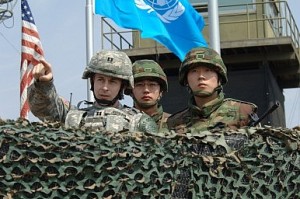U.S. Citizen Extradited to South Korea
On September 15, a United States citizen was extradited to South Korea on allegations of killing a college student at Seoul University in 1997. At the time, police arrested Arthur Patterson and Edward Lee, both 18, for stabbing Cho Jung-pil in a Burger King bathroom. Originally, prosecutors arrested Lee as the murderer and Patterson as an accomplice, believing the two had dared each other to kill the man. The case has attracted significant media attention because the public is sensitive to foreigners committing crimes. Some hypothesize that Patterson, the son of a U.S. military contractor, received a harsher final punishment than Lee, who is not connected to the military.

Patterson was initially charged with 18 months in prison for possessing an illegal firearm and tampering with evidence. He served only a small portion before the government released him during the annual Liberation Day special amnesty. On the other hand, Lee initially received a life sentence; however, an appeals court lowered his punishment to 20 years. Later on, the court found a lack of evidence tying Lee to the murder and acquitted him. Before South Korean authorities could enforce a travel ban, Patterson fled to America in 1999 and went into hiding.
The case received new attention in 2009 when a documentary, Where the Truth Lies, exposed the incompetence of the authorities handling Patterson’s investigation. Following the media firestorm in 2006 that castigated the officers involved a Seoul court mandated that the government pay Cho’s family the equivalent of $34,000 to make amends for its errors. In 2011, the Ministry of Justice called for Patterson’s extradition after finding new evidence.
The film incited the rage of many South Koreans because Patterson is the son of an American military contractor. Although Koreans generally have a positive view of the United States, the misbehavior of some American service members led to a less favorable view of the U.S. military presence in South Korea.
In 1992, the murder of a young woman by an American military officer galvanized public opinion and sparked an anti-military movement to limit the U.S. army’s presence in South Korea. In 2002, a U.S. army vehicle crushed two middle-school girls to death, leading to nation-wide vigils in solidarity. Cases of rape and assault have led Seoul clubs to bar entrance to U.S. service members and there have been increased calls to renegotiate the alliance.
The presence of the American military also symbolizes painful colonial history. Some believe that the U.S. supported the repressive Park Chung-hee government after the Korean War. Moreover, one of the initial provisions of the alliance stipulates that the U.S. would command both countries’ troops in the event of a war. More recent waves of anti-Americanism focus on the presence of the U.S. military as an unnecessary provocation against North Korea and China. South Korea has recently made some indication that it is ready to actively engage with its neighbor through family reunifications and a jointly operated industrial park. While these goals are a long way to fruition, some see the U.S. military as a barrier to greater East Asian unification.
